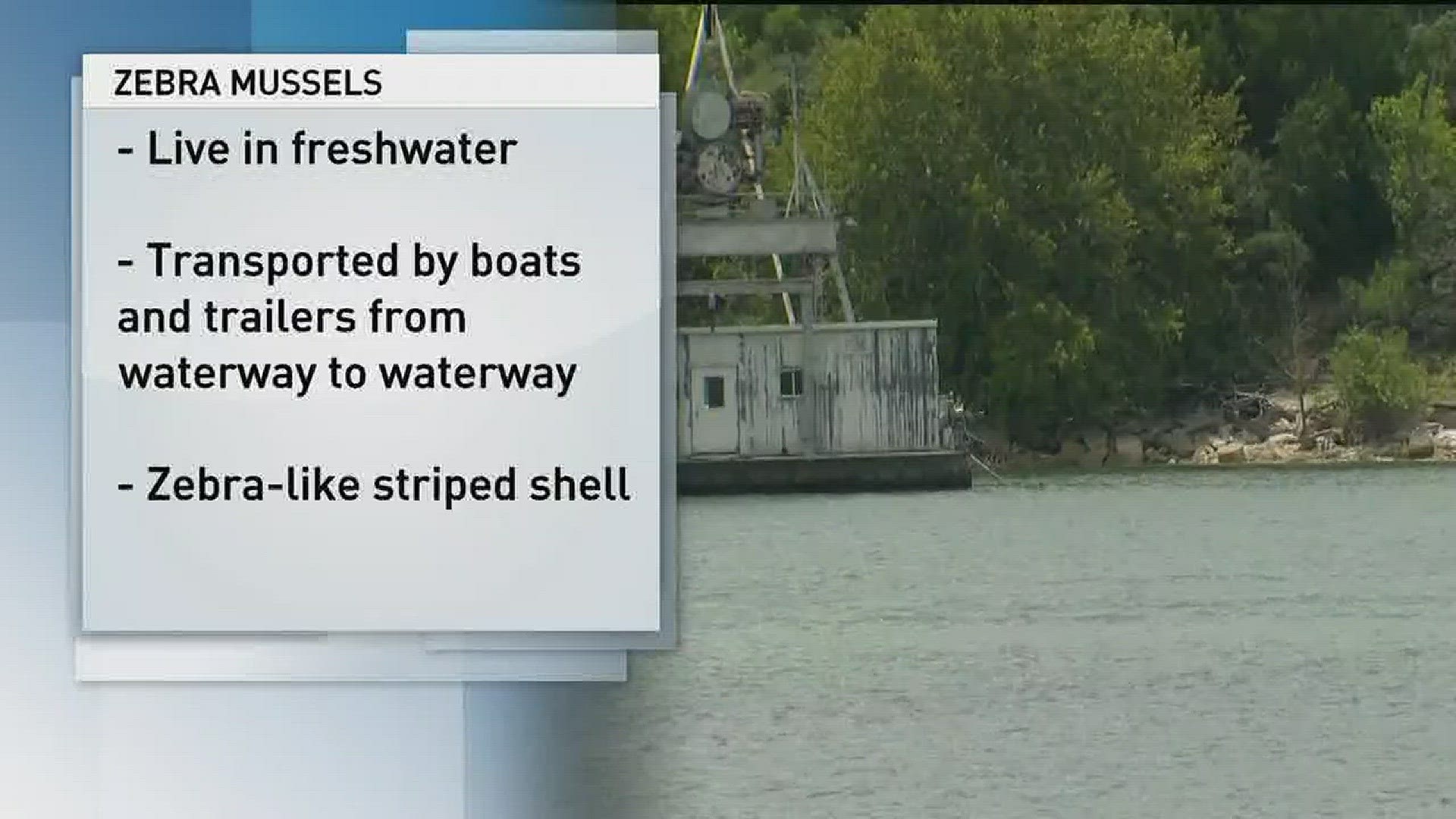Zebra mussels have been positively identified in Lake Travis, weeks after biologists confirmed the invasive species had spread to the Guadalupe River Basin.
Texas Parks and Wildlife Department (TPWD) and the Lower Colorado River Authority (LCRA) said a zebra mussel was confirmed in the lake June 22 after a marina staff member reported a single zebra mussel attached to the outboard motor of a boat there. Biologists found more mussels attached to other nearby boats and on the marina infrastructure.
RELATED:
“This is pretty disheartening for us and our many partners, including marinas, who work to prevent this invasive species from spreading – it’s two new river basins with infestations this year,” said Monica McGarrity, TPWD Aquatic Invasive Species team lead in a prepared statement. “But we are very grateful to the marina staff for reporting the sighting, our partners at Texas Invasives for relaying the report to us, and the LCRA for participating in a rapid response to investigate the report.”
Zebra mussels originate in Eurasia and can reproduce rapidly. TPWD said the mussels can “shoreline rocks and litter beaches with treacherously sharp shells, clog public-water intakes, and damage boats and motors left in infested waters.” Inland Fisheries Director Brian Van Zee said the next step is now to educate the public and local marinas to help prevent the mussels from spreading into other lakes.
“Public awareness goes a long way in helping with the effort to prevent zebra mussels from spreading,” Van Zee said. “This is a battle we cannot give up on – the cost of these infestations is large and affects so many people. We have to keep up the fight and try to inform the public as much as possible about how they can protect their lakes from invasive species.”
McGarrity added while there is an inevitable risk of zebra mussel larvae moving downstream into Lake Austin and Lady Bird Lake, there is still the immediate risk of zebra mussels hitching a ride to those lakes on recreational equipment.
“Downstream dispersal depends on the number of larvae going downstream, the conditions they experience and the timing,” McGarrity said. “But a boat can take a ready-made colony to another lake at any time – so preventing the spread within these newly infested basins is still really important. The longer we can stave off new infestations the longer we can prevent potential recreational impacts or costly impacts to infrastructure.”
TPWD added it is illegal to possess or transport zebra mussels, dead or alive, in Texas. Boaters are required to drain all water from their boat and onboard receptacles before leaving or approaching a body of fresh water to prevent the transfer of zebra mussels.
“Cleaning, draining and drying really doesn’t take much time – it’s a few simple steps that boaters can take to prevent these infestations,” McGarrity said. “There are more than 1,500 boat ramps in Texas and we can’t be everywhere, so we have to rely on boaters, marinas and concerned citizens to help in this fight.”
Since zebra mussels were first found in Texas in 2009, 11 lakes in five river basins have been infested:
- Belton,
- Bridgeport,
- Canyon,
- Dean Gilbert (a 45-acre Community Fishing Lake in Sherman),
- Eagle Mountain,
- Lewisville,
- Randell,
- Ray Roberts,
- Stillhouse Hollow,
- Texoma,
- Travis.
Marinas should contact TPWD at 512-389-4848 for assistance if staff locate zebra mussels on incoming boats, or for coordination when boats are leaving marinas on infested lakes. TAP HERE to learn more about preventing the spread of zebra mussels.

